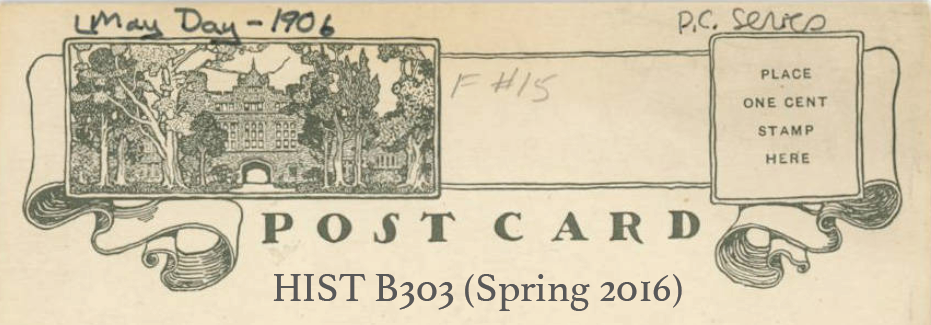In “Hope and the Historian,” Ta-Nehisi Coates offers a striking point of advice for the historian dealing with difficult histories: “If your writing must be hopeful, then there’s only room for the kind of evidence that verifies your premise. The practice of history can’t help there.” This paints a depressing but often accurate picture of history as “the story of things just not working out.” Thinking back to my early history education in light of this quote, I can see how complex issues were often given a more “hopeful” cast. Textbooks recounting the history of the Civil Rights and Women’s Suffrage Movements did not always spend time discussing the problems that remained in society afterwards. While it is important to celebrate the successes of the past, it is equally crucial to acknowledge what has yet to be accomplished.
That being said, “acknowledgement” can only go so far; at some point, one has to stop talking and start taking steps toward change. This does not necessarily have to be the product of naïve hope. Certainly it is disheartening to observe the persistence of racism regardless of what social advancements are made. However, if we as a country acknowledge such unpleasant truths instead of glossing over them, we can perhaps develop a more practical means of helping those in need wherever possible. The problems of poverty and racism run deep, and it would indeed be naïve to think they can be easily and completely eradicated. On the other hand, to conclude that nothing can be done would be just as detrimental.
